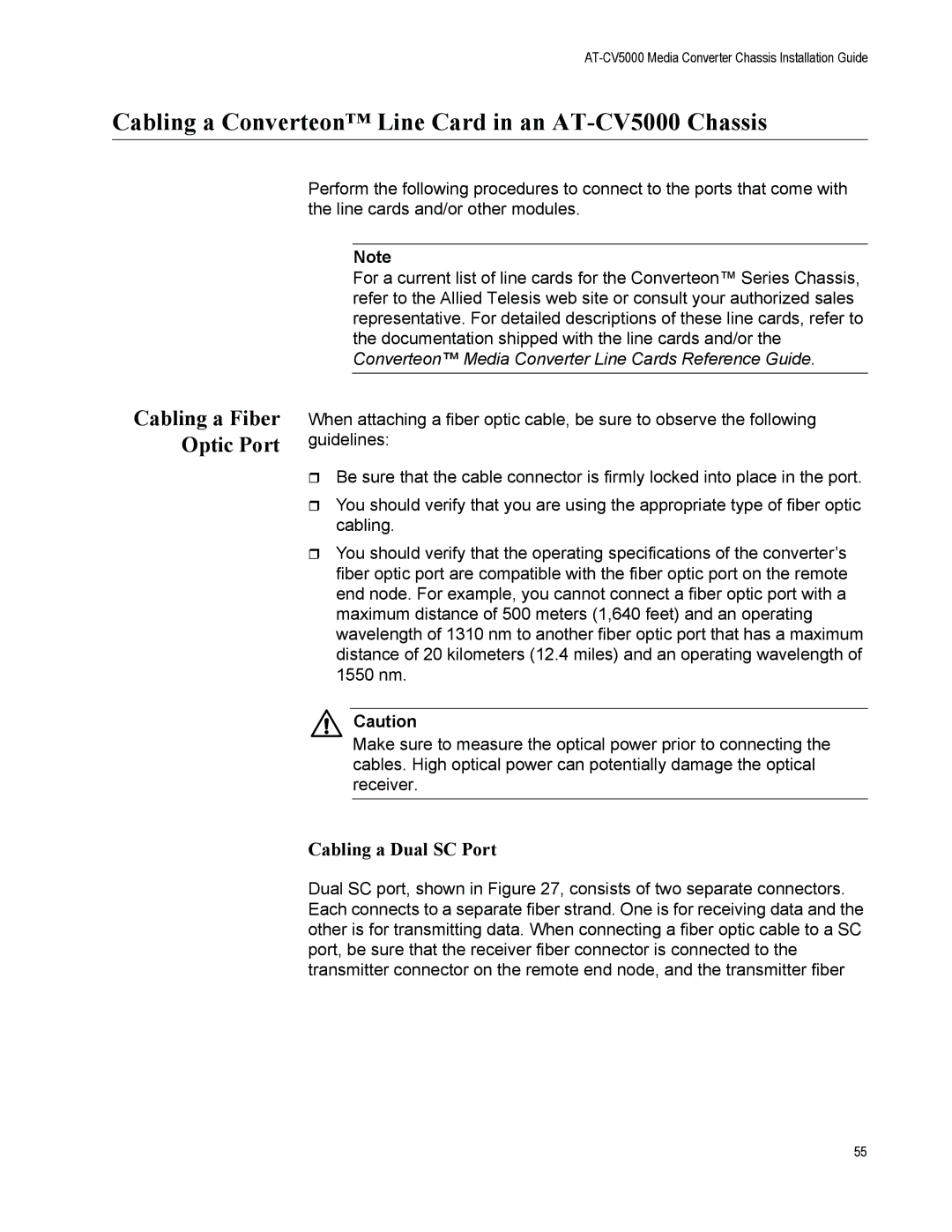
AT-CV5000 Media Converter Chassis Installation Guide
Cabling a Converteon™ Line Card in an AT-CV5000 Chassis
Cabling a Fiber Optic Port
Perform the following procedures to connect to the ports that come with the line cards and/or other modules.
Note
For a current list of line cards for the Converteon™ Series Chassis, refer to the Allied Telesis web site or consult your authorized sales representative. For detailed descriptions of these line cards, refer to the documentation shipped with the line cards and/or the Converteon™ Media Converter Line Cards Reference Guide.
When attaching a fiber optic cable, be sure to observe the following guidelines:
Be sure that the cable connector is firmly locked into place in the port.
You should verify that you are using the appropriate type of fiber optic cabling.
You should verify that the operating specifications of the converter’s fiber optic port are compatible with the fiber optic port on the remote end node. For example, you cannot connect a fiber optic port with a maximum distance of 500 meters (1,640 feet) and an operating wavelength of 1310 nm to another fiber optic port that has a maximum distance of 20 kilometers (12.4 miles) and an operating wavelength of 1550 nm.
Caution
Make sure to measure the optical power prior to connecting the cables. High optical power can potentially damage the optical receiver.
Cabling a Dual SC Port
Dual SC port, shown in Figure 27, consists of two separate connectors. Each connects to a separate fiber strand. One is for receiving data and the other is for transmitting data. When connecting a fiber optic cable to a SC port, be sure that the receiver fiber connector is connected to the transmitter connector on the remote end node, and the transmitter fiber
55
